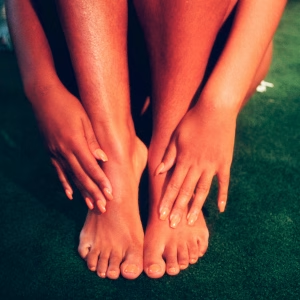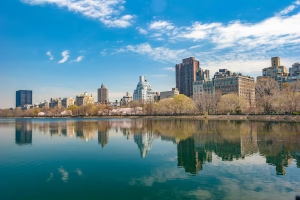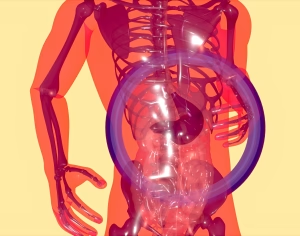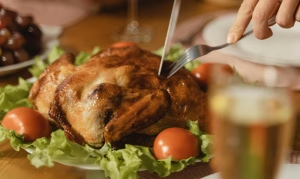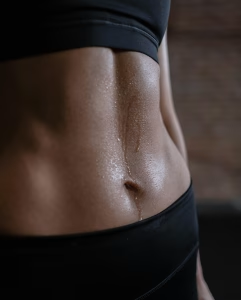
Contrary to popular belief, there is a great deal of overlap between Chinese and Western medical diagnoses and systems. A good clinician from either should inquire about your metabolism—fluid or otherwise. How often do you pee and poop? Drink water or eat? We both feel patients’ pulses, at the wrist and sometimes even the carotid (throat) and dorsal pedis position on top of the feet. Additionally, I was reminded while (binge)watching The Pitt that Chinese medicine is not the only paradigm that places emphasis on abdominal palpation.
In Western medicine, my understanding is doctors are feeling for any number of things: fluid retention, organs size and shapes, masses or tumors, tenderness, or pain.
Our assessment process is not much different, though as expected, most acupuncturists are less adept at detecting tumors or misshapen organs, and most doctors are not applying their findings to a global/holistic diagnosis. They are ruling out emergency, which has its own obvious value. Acupuncturists, instead, are searching more for subjective signs to fit a pattern diagnosis.
A COLD abdomen means metabolic organs are lacking in blood or healthy gases and requires moxibustion therapy and/or herbal families such as dry fried ginger or aconite stone.
A SOFT abdomen generally indicates fluid retention because of some subjective deficiency of mitochondria and might require herbs such as poria mushroom and tangerine peel to drain the excess fluids, but also aconite stone to engender cellular energy and adrenal function with the hope of preventing further fluid retention.
Tension in the upper abdomen might indicate inflammation, dryness, and a tendency to constipation, whereas tension or sensitivity below the umbilicus points more towards weakness again, and possibly diarrhea. The former often requires rhubarb root, whereas the latter might need a combination of ginseng and evodia fruit. The wrong herbal formula will make symptoms temporarily though immediately worse.
Tension anywhere can indicate local fluid retention and/or blood stagnation that may or may not be the final piece of the puzzle in getting some chronic illnesses to resolve. Local needling and moxibustion can be helpful, as can herbal formulas with peach kernel or peony root.
To the left of the abdomen pertains to metabolic function, specifically and especially between the pancreas and portal vein to the liver, as it is said in Chinese medicine: “Liver blood ascends on the left (side of the body).” In its ascension it acts as a courier for healthy gases and immunological substances, which is why tension here might point to immunodeficiency.
To the right of the abdomen pertains more to the reproductive organs, ovarian function or otherwise. It might also be implicated in chronic constipation, so if you suffer from both for example—menstrual irregularity and constipation—the focus of treatment should be on the lower right abdominal quadrant, hypothesizing that once the bowels regularly move the reproductive organs can regularly function, sans obstruction.
How does your abdomen feel? Is it tight, taut, and thus “dry,” or soft and yielding, thus “damp?” Excessively cold or hot? Tender? Have you ever thought about how it can and should inform your physician? BTW, The Pitt was great! Highly recommend.

